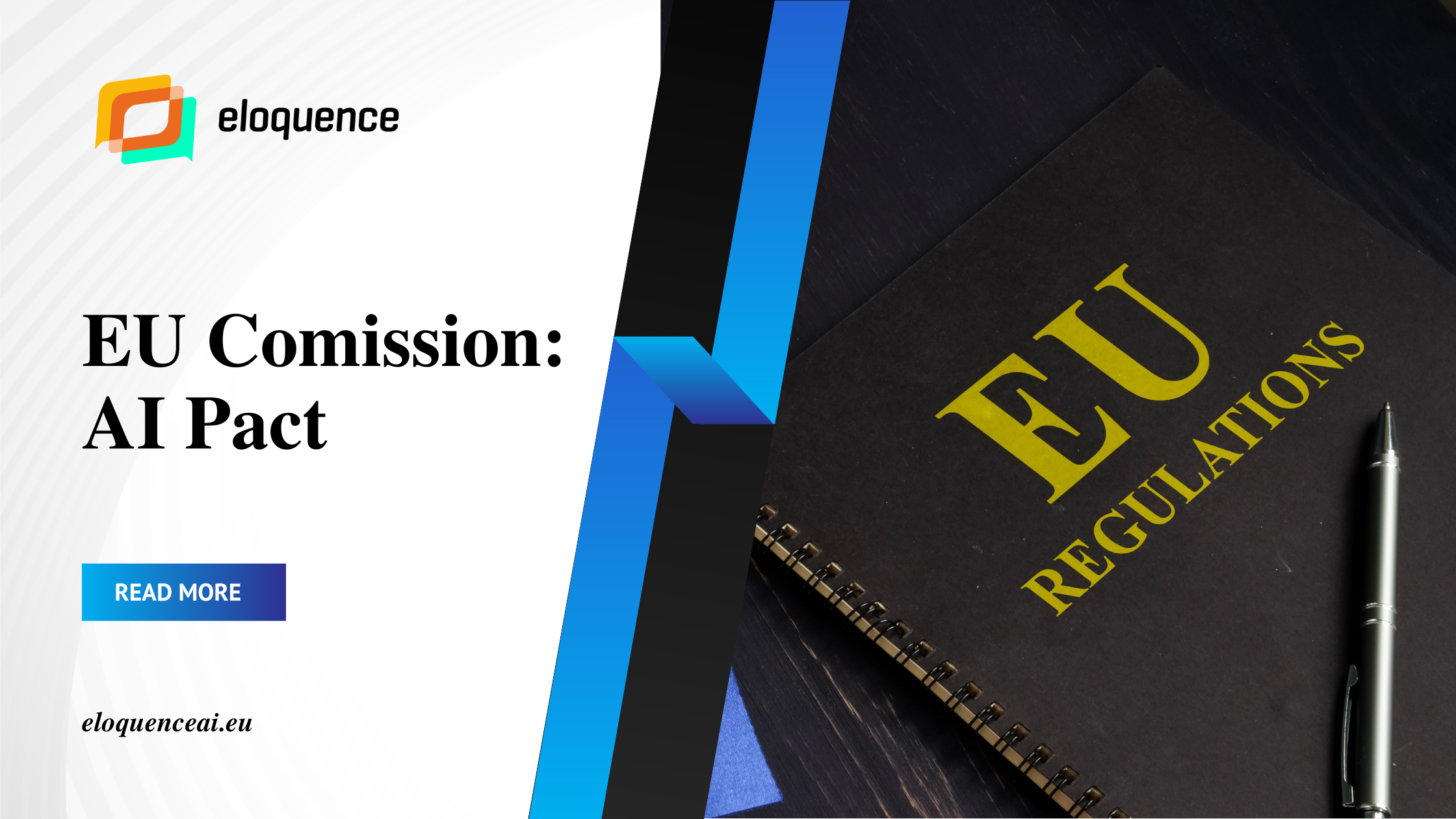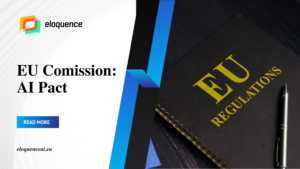The European Commission welcomed the political agreement on the first-ever legal framework on AI, reached between the European Parliament and the Council on the Artificial Intelligence Act (AI Act). This AI Act addresses the risks of AI and positions Europe to play a leading role globally. Also, it encourages and supports organisations to plan the implementation of AI Act measures.
The Commission is advocating for the AI Pact, encouraging the industry’s voluntary commitment to proactively comply with the AI Act and begin implementing its requirements before the official deadline. AI Act is currently in the final stages of the legislative process and some provisions of the Act will be applied shortly after the adoption of the regulation.
In order to better understand the AI Pact, its creators structured the Pact around two pillars:
- Pillar I serves as an entry point for engaging with the AI Pact network, which consists of organizations that have shown interest in the Pact. It promotes the sharing of best practices and offers practical information on the implementation process of the AI Act;
- Pillar II motivates AI system providers and deployers to prepare in advance and take steps toward meeting the requirements and obligations outlined in the legislation.
Although current laws offer some protection, they do not adequately address the unique challenges posed by AI systems. The proposed Act aims to:
- address risks specifically created by AI applications;
- prohibit AI practices that pose unacceptable risks;
- determine a list of high-risk applications;
- set clear requirements for AI systems for high-risk applications;
- define specific obligations deployers and providers of high-risk AI applications;
- require a conformity assessment before a given AI system is put into service or placed on the market;
- put enforcement in place after a given AI system is placed into the market;
- establish a governance structure at the European and national level.
What benefits do you have as Pact participants?
As a Pact participant, you will get support in:
- building a common understanding of the objectives of the AI Act;
- taking concrete actions to understand, adapt and prepare for the future implementation of the AI Act;
- sharing knowledge and increasing the visibility and credibility of the safeguards put in place to demonstrate trustworthy AI;
- building additional trust in AI technologies.
Ursula von der Leyen, President of the European Commission, said:
“Artificial intelligence is already changing our everyday lives. And this is just the beginning. Used wisely and widely, AI promises huge benefits to our economy and society. Therefore, I very much welcome today’s political agreement by the European Parliament and the Council on the Artificial Intelligence Act. The EU’s AI Act is the first-ever comprehensive legal framework on Artificial Intelligence worldwide. So, this is a historic moment. The AI Act transposes European values to a new era. By focusing regulation on identifiable risks, today’s agreement will foster responsible innovation in Europe. By guaranteeing the safety and fundamental rights of people and businesses, it will support the development, deployment and take-up of trustworthy AI in the EU. Our AI Act will make a substantial contribution to the development of global rules and principles for human-centric AI.”
The ELOQUENCE project will respect European values (i.e., privacy, non-discrimination, robustness in legal,
ethical and technical terms), including in preparation for the near-future AI Act. Besides the AI Act, attention will also be given to existing and emerging EU regulations including the Data Act, the Digital Services Act, and the Data Governance Act, as well as taking into account the Ethics Guidelines for Trustworthy Artificial Intelligence.
For more information:
Commission welcomes political agreement on Artificial Intelligence Act


